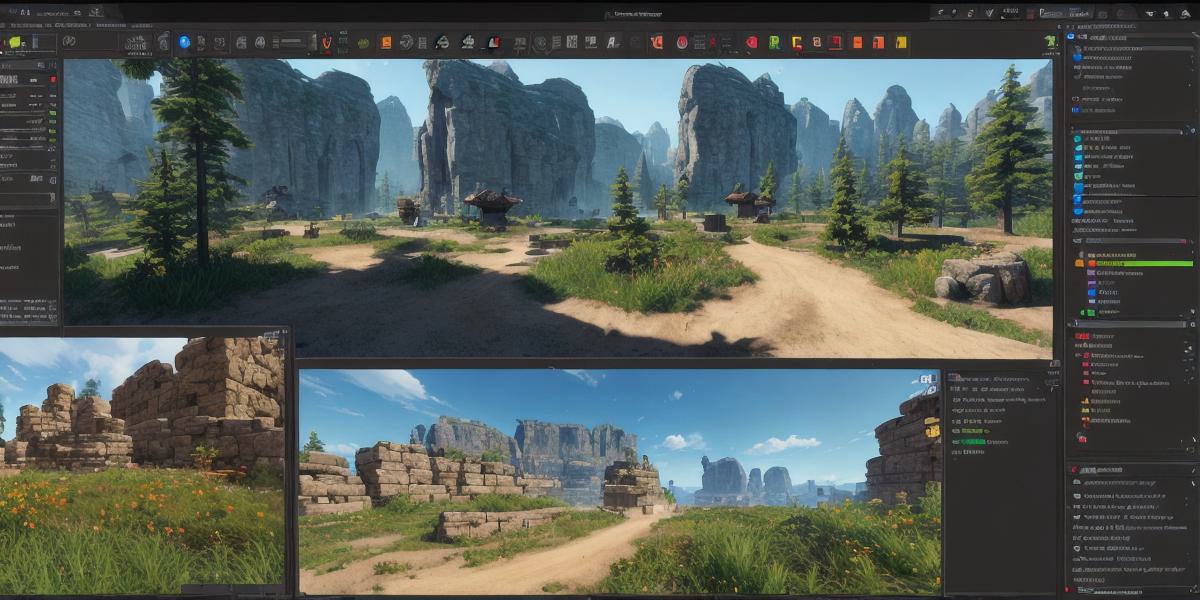Introduction
Game development is a fascinating and rewarding field, with a wide range of opportunities available for those who want to pursue it as a career. Whether you’re a recent graduate or looking to make a change in your career, starting out in game development can be an exciting challenge. However, it’s important to understand that becoming a master at game development requires a combination of skills, knowledge, and hard work. In this guide, we will take you through the steps you need to take to become a successful game developer.
Step 1: Learn the basics
The first step in any journey is to learn the basics. Game development requires a solid foundation of programming skills, as well as knowledge of game engines, design principles, and user experience. Here are some resources that can help you get started:
- Codecademy’s game development courses: These courses cover the fundamentals of game development, including HTML5, CSS3, JavaScript, and game engines like Unity and Unreal Engine.
- Udemy’s game development courses: Udemy offers a wide range of courses on game development, covering everything from beginner to advanced levels.
- Game Development Stack Exchange: This is a great resource for finding answers to your questions about game development, as well as learning from the experiences of other developers.
Step 2: Choose your specialization
Once you have learned the basics, it’s time to choose a specialization in game development. There are many different areas within game development, including programming, art and animation, sound design, and production. Here are some tips for choosing your specialization:

- Consider your strengths: If you have a background in programming or art, you may be more suited to certain areas of game development.
- Look at job descriptions: Game development jobs often specify the skills and experience required for each role. By looking at these descriptions, you can get a sense of what skills are in demand in different areas of game development.
- Choose an area that interests you: Ultimately, it’s important to choose an area of game development that you enjoy and are passionate about. This will make the learning process more enjoyable and increase your chances of success.
Step 3: Build a portfolio
As a game developer, your portfolio is your most valuable asset. It showcases your skills and experience, as well as your ability to work under pressure and meet deadlines. Here are some tips for building a strong portfolio:
- Start small: Begin by building simple games or projects that demonstrate your skills and passion for game development.
- Showcase your work: Share your projects on social media platforms like Twitter and Instagram, and show them off to friends, family, and colleagues.
- Get feedback: Ask for feedback from other developers, mentors, or industry professionals on how you can improve your portfolio and your skills.
Step 4: Network
Networking is an essential part of any career, but it’s particularly important in game development. Here are some tips for building a strong network:
- Attend industry events: Conferences, meetups, and other events are great opportunities to meet other developers and learn about the latest trends in game development.
- Join online communities: There are many online communities for game developers, such as Reddit’s r/gamedev and Stack Overflow’s game development tag. These communities are a great place to share your work, ask questions, and connect with other developers.
- Reach out to mentors: Seek out experienced developers who can offer guidance and advice on your journey. You can find mentors through online forums, social media, or by reaching out to industry professionals directly.
Step 5: Keep learning
Finally, it’s important to keep learning and growing as a game developer. Here are some resources that can help you continue your education:
- Game Development Guild: This is a community of game developers who share knowledge, tips, and advice on game development.
- Udacity’s game development courses: Udacity offers advanced game development courses that cover topics like virtual reality, augmented reality, and artificial intelligence.
- GDC: The Game Developers Conference (GDC) is the largest event in the game industry, featuring keynotes, workshops, and networking opportunities for developers of all levels.
